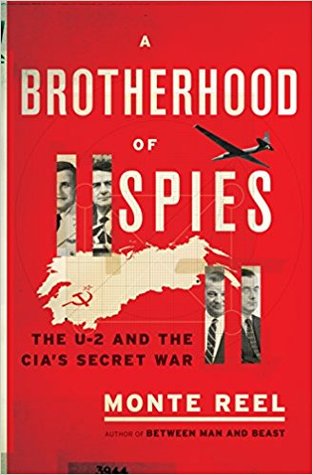Ben Macintyre is a badass writer of narrative nonfiction about lesser known historical figures from the World War II era. I read and reviewed his blockbuster, A Spy Among Friends: Kim Philby and the Great Betrayal, which was published in 2014; when I was invited to do the same for Agent Sonya, I didn’t hesitate. My thanks go to Net Galley and Crown Publishing for the review copy. You can buy this book now.

Her real name was Ursula Kuczynski, and she was a German Jew. Hitler came to full power when she was visiting China, and her entire family fled. Born before the Russian Revolution, she lived until after the fall of the Berlin Wall, and so her lifespan encompassed the entire duration of the Soviet Union. An unusually intelligent woman, she was drawn to Communism by the horror of Fascism, and by the misery created by disparate wealth that was right in front of her. The Chinese peasantry were so wretchedly poor that she found dead babies in the street; starving mothers sometimes concluded that they might be able to save one child, but they surely couldn’t save more than that, and they were forced to make a tragic choice. This, in spite of the vast and opulent wealth of the most privileged classes; it was obviously wrong, and there appeared to be only one way around it. She signed on to be a spy for Moscow.
Kuczynski’s career in espionage spanned twenty years and took place in myriad locations across Europe and Asia. She briefly harbored doubts about her career at the time of the Molotov-Ribbentrop pact, but shortly after its creation, Hitler broke it by attacking the USSR, and the matter became moot. Others around her were apprehended and either jailed or executed, but Ursula always got away clean. As she advanced in the Red Army, ultimately receiving the rank of Colonel, she was given increasingly important work, and her ultimate achievement was in recruiting a scientist that was placed at a high level within the Manhattan Project. More than 500 pages of important documents made their way to Moscow, and because of his defection and Ursula’s skill, the USSR soon had the atomic bomb also.
Though Ursula never considered herself a feminist, she never hesitated when commanding men—a thing few women did at this point in history—and she didn’t let the men in her life shove her around. One of my favorite passages is when she is pregnant at an inconvenient time, and her estranged husband and lover put their heads together to decide what should be done. The two of them agree that Ursula needs an abortion, and Ursula tells them she’s decided to have the baby. Mansplainers never stood a chance with Ursula.
There were many instances when motherhood conflicted with her professional duties, and she had to make a lot of hard choices, but being a mother also provided her with an excellent cover. Sexist assumptions on the part of M15, M16, and other spy-catchers were also responsible for part of her success; how could a mother of three children who baked such excellent scones be a foreign agent? Don’t be silly. And consequently, her husband (whichever one) often drew scrutiny, but nobody ever dreamed that Ursula herself was the high level spy they sought.
The one thing I would have liked to see added to this excellent work is a photo of this woman; perhaps it is included in the final publication, but my digital review copy showed none.* I found photos of her online and understood right away why she was so effective. That disarming smile; that engaging face. Who could help loving her? She looks like everyone’s best friend. She appears incapable of duplicity.

Although the biography itself is serious in nature, there are some hilarious passages involving the nanny, and also an imbecilic British agent that couldn’t find his butt with both hands.
Finally, one of the most fortunate aspects of this biography is that although it is absorbing, it isn’t written like a thriller, and so it’s a great book for bedtime. You already know that Ursula isn’t going to be executed, right? Her story is told in linear fashion, so although it’s a literate, intelligently told story, it’s never confusing. With autumn upon us, I cannot think of a more congenial tale to curl up with on a chilly evening.
This book is highly recommended.
*An alert reader tells me that the final version includes photographs of Ursula and all the major players.

 3.5 stars rounded up. Thanks go to Net Galley and Doubleday for the DRC, which I received free and early in exchange for this honest review.
3.5 stars rounded up. Thanks go to Net Galley and Doubleday for the DRC, which I received free and early in exchange for this honest review. David Ignatius writes gripping spy fiction, and this is his best work. The basis of this one is the longstanding intelligence war between the CIA and its Chinese counterpart; the story is fictional, but his careful research ensures that this could have happened. Lucky me, I read it free thanks to Edelweiss and W.W. Norton and Company Publishers. This book will be available to the public tomorrow, November 7, 2017.
David Ignatius writes gripping spy fiction, and this is his best work. The basis of this one is the longstanding intelligence war between the CIA and its Chinese counterpart; the story is fictional, but his careful research ensures that this could have happened. Lucky me, I read it free thanks to Edelweiss and W.W. Norton and Company Publishers. This book will be available to the public tomorrow, November 7, 2017.